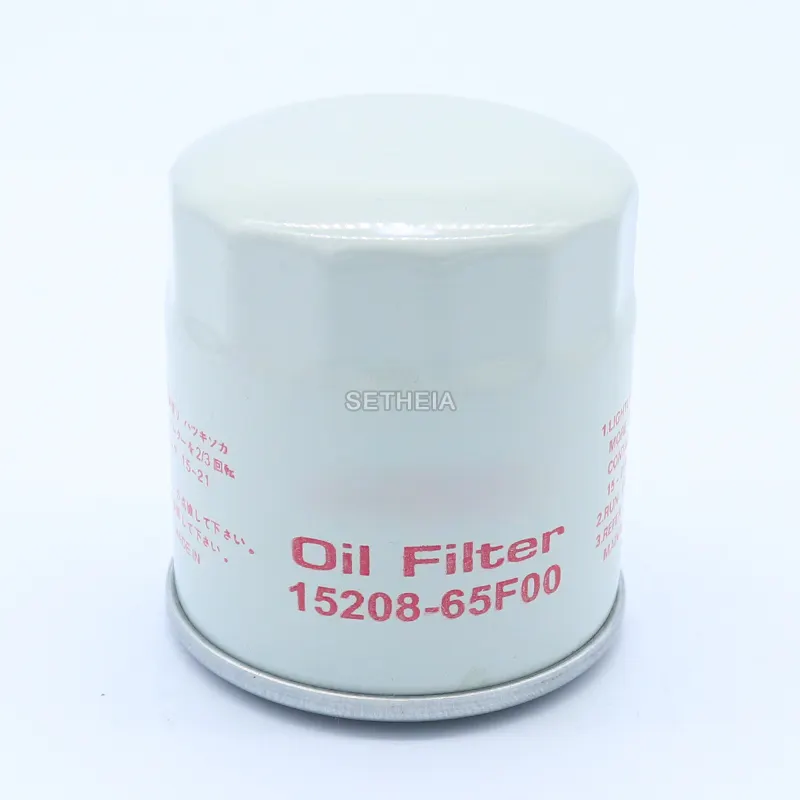Aug . 07, 2024 07:20 Back to list
Essential Guide to Choosing the Right Oil Filter for Your Toyota Camry Vehicle
Understanding the Importance of Oil Filters in Toyota Camry
The Toyota Camry has been one of the most popular vehicles in the United States and around the world for decades. Known for its reliability, fuel efficiency, and comfort, the Camry has earned the trust of millions of drivers. However, like all vehicles, it requires regular maintenance to ensure optimal performance and longevity. One critical component of this maintenance is the oil filter.
What Is an Oil Filter?
An oil filter is an essential component of your vehicle's engine lubrication system. Its primary function is to remove contaminants and debris from the engine oil before it circulates through the engine. Clean oil is crucial for maintaining the efficiency of your engine and protecting it from wear and tear. If the oil becomes dirty or contaminated, it can lead to increased friction, overheating, and ultimately, engine damage.
The Role of Oil Filters in the Toyota Camry
In the Toyota Camry, the oil filter plays a vital role in the overall health of the engine. When the engine runs, oil is pumped throughout the engine's components to lubricate moving parts, reduce friction, and cool the engine. Over time, the oil gets contaminated with dirt, metal particles, and combustion by-products. The oil filter traps these contaminants, ensuring that only clean oil circulates through the engine.
Selecting the right oil filter is crucial for maintaining the efficiency of your Camry. Toyota recommends using OEM (Original Equipment Manufacturer) filters specifically designed for your vehicle. These filters are engineered to meet the specifications of your Camry's engine, ensuring optimal filtration and performance.
Signs of a Clogged Oil Filter
oil filter toyota camry

Over time, oil filters can become clogged and may need to be replaced. Common signs of a clogged oil filter include
1. Engine Noise A clogged filter can lead to insufficient oil flow, resulting in increased friction and noise in the engine. 2. Oil Pressure Light If the oil pressure warning light illuminates on your dashboard, it may indicate a problem with the oil filter or oil pump. 3. Dirty Oil If you notice that your engine oil appears darker and thicker than usual, the oil filter may be overwhelmed with contaminants. 4. Decreased Engine Performance A clogged oil filter can lead to poor engine performance, including reduced power and acceleration.
Changing the Oil Filter
Regularly changing the oil filter is essential for maintaining your Toyota Camry's engine health. It is typically recommended to change the oil filter every time you change your engine oil, which is generally every 5,000 to 7,500 miles, depending on driving conditions and the type of oil used.
When changing the oil filter, it's essential to follow these steps
1. Gather Your Tools You'll need an oil filter wrench, a new oil filter, a drain pan, and fresh engine oil. 2. Locate the Oil Filter The oil filter in a Toyota Camry is usually located near the bottom of the engine, making it accessible from underneath the vehicle. 3. Remove the Old Filter Use the oil filter wrench to loosen and remove the old filter. Be prepared for some oil to spill out, so have your drain pan ready. 4. Install the New Filter Before installing the new filter, apply a bit of clean oil to the rubber gasket of the new filter. This ensures a proper seal. 5. Refill Engine Oil After replacing the filter, top off your engine oil, and check for any leaks around the new filter.
Conclusion
The oil filter is a small but vital component of your Toyota Camry's engine system. Regular maintenance, including timely oil and oil filter changes, is essential for keeping your vehicle running smoothly and efficiently. By paying attention to your oil filter and understanding its role, you can help ensure the longevity and performance of your trusty Camry for years to come.
-
Toyota Corolla Hatchback Cabin Air Filter – High Efficiency & Easy Installation
NewsJul.08,2025
-
Premium Canister Fuel Filter Supplier High Quality Oil Filtration Solutions
NewsJul.08,2025
-
Premium Car Filter Oil Solutions Leading Car Oil Filter Exporter Hyundai Car Oil Filter Exporters
NewsJul.08,2025
-
Buy 17x21x1 Air Filter – Improve Air Quality & HVAC Efficiency Affordable Air & Cabin Air Filter Cost
NewsJul.07,2025
-
High-Performance Filter Element Fuel – Durable, Efficient & Cost-Effective Solutions
NewsJul.07,2025
-
High-Quality Engine Filter and Cabin Filter for Superior Airflow Affordable Cabin and Engine Air Filter Cost
NewsJul.07,2025


